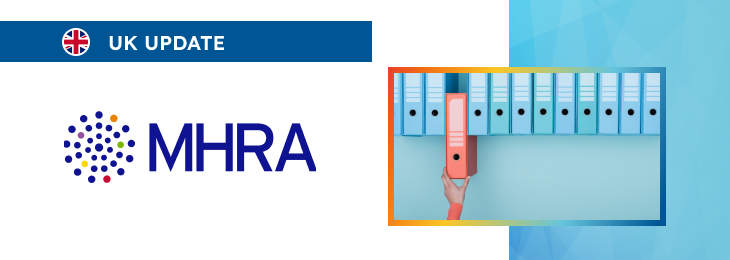The new article describes in detail the approach to be followed when deciding whether clinical investigations are necessary and also elaborates more on the circumstances associated thereto.

Table of content
The Medicines and Healthcare Products Regulatory Agency (MHRA), the UK regulating authority in the sphere of healthcare products, has published a revised guidance dedicated to clinical investigations involving medical devices. The document provides an overview of the applicable regulatory requirements set forth under the existing legislation, as well as additional clarifications and recommendations to be taken into consideration by medical device manufacturers, study sponsors, and other parties involved in order to ensure compliance thereto.
The authority also reserves the right to make changes to the guidance and recommendations provided therein, should such changes be reasonably necessary to reflect corresponding amendments to the underlying rules and regulations.
In particular, the document describes the necessary considerations and conditions under which a clinical investigation may be required for medical devices in the UK. It is structured into several key sections, each addressing different scenarios and regulations as highlighted by the MHRA.
Decision-Making for Clinical Investigations
According to the guidance, when determining the need for a clinical investigation, manufacturers should come up with a series of decisions to ensure compliance with the relevant safety and performance requirements. These decisions include:
- Identifying the essential safety and performance requirements applicable to the device in question.
- Determining the data necessary to demonstrate compliance with these requirements.
- Deciding on the appropriate tests (e.g., bench testing, animal testing) required to gather these data.
- Assessing whether existing clinical data on the device or equivalent devices are sufficient, or if new data need to be generated.

Circumstances Necessitating a Clinical Investigation
The document also describes specific circumstances under which a clinical investigation would be required.
In accordance with the applicable regulations, clinical investigations are especially important under certain conditions:
- For implantable or Class III medical devices.
- When a device introduces a completely new concept or has novel features that could significantly impact its clinical performance or safety.
- If the device uses new materials or applies existing materials in new ways, impacting its compatibility and biological safety.
- When a device is intended for a new purpose, or if it’s a high-risk device with a new manufacturer.
Regulatory Notifications and Exemptions
In addition to the above, the document mentions certain exemptions to be taken into consideration by the parties responsible for medical devices.
In particular, the authority mentions that:
- Clinical investigations for UKCA/CE marked devices used as intended do not require MHRA notification unless conducted in Northern Ireland with additional invasive procedures.
- Changes in the use or performance claims of a device that already carries UKCA/CE marking necessitate generating new clinical data through a specifically designed investigation.
Special Scenarios
In order to assist the parties involved with understanding the existing legal framework and respective regulatory requirements, the authority further describes certain special scenarios, explaining the suggested way of action for each of them.
- Comparative Studies: Comparative studies do not require MHRA notification if both devices involved are UKCA/CE marked and used as originally intended. However, if any device is not UKCA/CE marked, notification is mandatory.
- Prototype Devices: The MHRA acknowledges the use of prototype devices in clinical investigations, which may undergo various changes before mass production. Significant modifications that could increase risks necessitate a new submission to assess safety considerations.
- Multi-regulatory Investigations: For clinical investigations submitted to the FDA or other non-UK authorities, manufacturers must clarify any differences in protocols and keep the MHRA informed of any protocol changes requested by these authorities.
- In-House Manufactured Devices: Devices manufactured and tested within the same healthcare establishment for proof of concept are not covered under the UK MDR 2002 regulations unless intended for commercial medical use.
- Off-Label Use: Healthcare professionals using UKCA/CE marked devices for unapproved purposes take on manufacturer responsibilities, including the need to notify the MHRA if the off-label use has commercial intentions.
- Research Tools: Devices used solely for research without a medical purpose are typically not considered medical devices unless a medical application is anticipated by the manufacturer, in which case regulatory guidelines apply.
- Humanitarian Use: The MHRA may authorize the use of non-UKCA/CE marked devices on humanitarian grounds, requiring an application by the manufacturer and specific authorization before use.
Conclusion
In summary, in the present guidance, the authority explains that the decision to undertake a clinical investigation involves careful consideration of the device’s intended use, modifications, and the materials involved. The parties involved are obliged to take all the steps necessary to ensure the safety and efficacy of medical devices, with specific protocols in place for different scenarios, including comparative studies, prototype evaluations, and off-label uses. Medical device manufacturers and study sponsors are encouraged to consult with the MHRA when taking actions aimed at ensuring patient safety and adherence to medical device regulations.
How Can RegDesk Help?
RegDesk is a holistic Regulatory Information Management System that provides medical device and pharma companies with regulatory intelligence for over 120 markets worldwide. It can help you prepare and publish global applications, manage standards, run change assessments, and obtain real-time alerts on regulatory changes through a centralized platform. Our clients also have access to our network of over 4000 compliance experts worldwide to obtain verification on critical questions. Global expansion has never been this simple.

